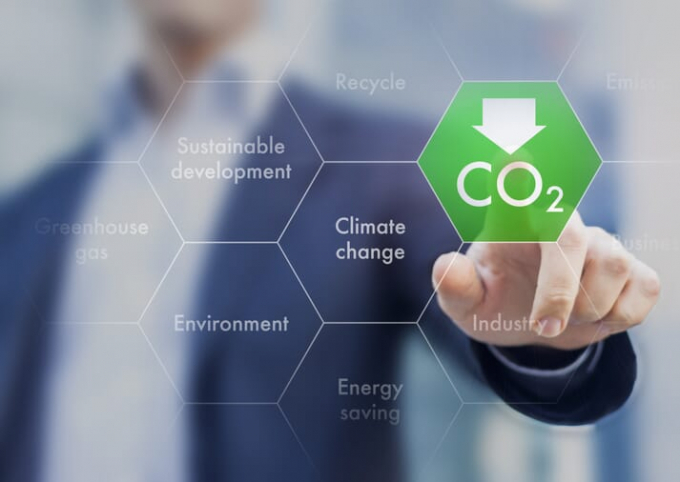June 14, 2025 | 19:37 GMT +7
June 14, 2025 | 19:37 GMT +7
Hotline: 0913.378.918
June 14, 2025 | 19:37 GMT +7
Hotline: 0913.378.918
Although over a quarter of all 2014-2020 EU agricultural spending – more than €100 billion – was earmarked for climate change, greenhouse gas emissions from agriculture have not decreased since 2010. This is because most measures supported by the Common Agricultural Policy (CAP) have a low climate-mitigation potential, and the CAP does not incentivise the use of effective climate-friendly practices.

“The EU’s role in mitigating climate change in the agricultural sector is crucial, because the EU sets environmental standards and co-finances most of Member States’ agricultural spending”, said Viorel Ștefan, the member of the European Court of Auditors responsible for the report. “We expect our findings to be useful in the context of the EU’s objective of becoming climate-neutral by 2050. The new Common Agricultural Policy should have a greater focus on reducing agricultural emissions, and be more accountable and transparent about its contribution to climate mitigation”.
The auditors examined whether the 2014-2020 CAP supported climate mitigation practices with the potential to reduce greenhouse gas emissions from three key sources: livestock, chemical fertilisers and manure, and land use (cropland and grassland). They also analysed whether the CAP incentivised the uptake of effective mitigation practices better in the 2014-2020 period than it did in the 2007-2013 period.
Livestock emissions represent around half of emissions from agriculture; they have not decreased since 2010. These emissions are directly linked to the size of the livestock herd, and cattle cause two thirds of them. The share of emissions attributable to livestock rises further if the emissions from the production of animal feed (including imports) is taken into account. However, the CAP does not seek to limit livestock numbers; nor does it provide incentives to reduce them. CAP market measures include the promotion of animal products, consumption of which has not decreased since 2014; this contributes to maintaining greenhouse gas emissions rather than reducing them.
Emissions from chemical fertilisers and manure, which account for almost a third of agricultural emissions, increased between 2010 and 2018. The CAP has supported practices that may reduce the use of fertilisers, such as organic farming and cultivating grain legumes. However, these practices have an unclear impact on greenhouse gas emissions, according to the auditors. Instead, practices that are demonstrably more effective, such as precision farming methods that match fertiliser applications to crop needs, received little funding.
The CAP supports climate-unfriendly practices, for example by paying farmers who cultivate drained peatlands, which represent less than 2% of EU farmland but which emit 20% of EU agricultural greenhouse gases. Rural development funds could have been used for the restoration of these peatlands, but this was rarely done. Support under the CAP for carbon sequestration measures such as afforestation, agroforestry and the conversion of arable land to grassland has not increased compared to the 2007-2013 period. EU law does not currently apply a polluter-pays principle to greenhouse gas emissions from agriculture.
Finally, the auditors note that cross-compliance rules and rural development measures changed little compared to the previous period, despite the EU’s increased climate ambition. Although the greening scheme was supposed to enhance the environmental performance of the CAP, it did not incentivise farmers to adopt effective climate-friendly measures, and its impact on climate has been only marginal.
Further steps
The EU’s 2021-2027 Common Agricultural Policy, which will involve around €387 billion in funding, is currently under negotiation at EU level. Once the new rules are agreed, Member States will implement them through “CAP Strategic Plans” designed at national level and monitored by the European Commission. Under the current rules, each Member State decides whether or not its farming sector will contribute to reducing agricultural emissions.
(The Pig Sites)

(VAN) The working delegation from the Ministry of Agriculture and Environment conducted an important trip to the Netherlands to strengthen strategic partnerships and sustainable development in the agricultural sector.

(VAN) The letter ‘A Plea from the Ocean’ not only evokes emotion but also awakens the human conscience to the responsibility of protecting life on Earth.

(VAN) The Department of Agriculture in South Africa has announced the country’s first mass vaccination of poultry to prevent local birds from contracting avian influenza.

(VAN) Establishment of the Mekong Delta Regional Agricultural Linkage Center, aiming for a closed value chain, deep processing, trading platforms, and international market connectivity.

(VAN) Gia Lai province has recently recorded 460 rare species of animals and plants, contributing to forest conservation and biodiversity planning in the region.

(VAN) Ms. Caroline Beresford, New Zealand Ambassador to Vietnam, expressed confidence that agricultural cooperation between Vietnam and New Zealand will develop sustainably, be climate-resilient, and promote gender equality.

(VAN) Vietnam reaffirms its commitment to international cooperation in fostering sustainable and responsible fisheries while ensuring resilient livelihoods for small-scale fishing communities.